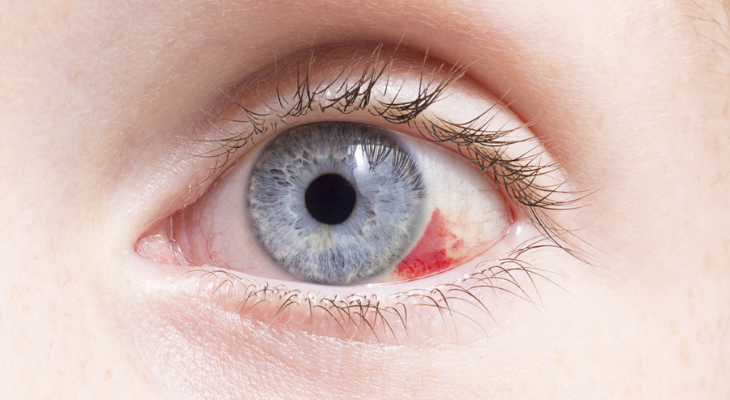
A Broken Blood Vessel In Your Eye: Is It a Cause for Concern?
Seeing a red spot on your eye when you look in the mirror can be a little frightening. Fortunately, subconjunctival hemorrhages, or broken blood vessels, are rarely serious.
What Causes Broken Blood Vessels?
A network of small blood vessels brings oxygen and nutrients to your eyes. If one of these vessels breaks under the conjunctiva, the clear tissue that covers your eye, you may notice a red streak or spot on the white part of your eye. Broken blood vessels may look like a tiny pinpoint of blood or might cover nearly all of your eye.
A blow to the face can cause a broken blood vessel, but an injury isn't the only reason you may notice a change in your eye's appearance. Subconjunctival hemorrhages can also be caused by:
- Sneezing or coughing
- Vomiting
- Rubbing your eyes
- Lifting something heavy
- Straining during a bowel movement
- An illness
- Eye surgery
You may be more likely to develop broken blood vessels if you have high blood pressure or diabetes, take blood thinners, are over age 50, have a blood clotting disorder, or wear contact lenses, according to All About Vision. Broken blood vessels are common in newborns. They're usually related to pressure against the eyes during childbirth.
What Are the Symptoms of a Broken Blood Vessel?
A red spot in your eye and mild irritation may be the only symptoms you'll experience if you have a broken blood vessel. Although the bloody spot may look scary, broken blood vessels don't usually cause pain or affect your vision.
How Are Broken Blood Vessels Treated and Prevented?
Broken blood vessels usually go away on their own, although they won't disappear overnight. Depending on the size of the broken vessel, your spot may begin to fade in a few days or several weeks. Call your eye doctor if your eye does not start to look better in a few weeks. If the broken vessel irritates your eye, use artificial tears to keep your eye moist and improve lubrication.
It's a good idea to see your ophthalmologist if broken blood vessels are a frequent occurrence. Your eye doctor can determine if the broken vessels are caused by a problem with your eye or are related to an eye care issue, such as wearing contact lenses too long. If your eye doctor suspects that you may be experiencing broken blood vessels due to an underlying health condition, he may refer you to your family doctor or a specialist.
Keeping chronic conditions, like diabetes and high blood pressure, under control can decrease broken blood vessels. It's also important to protect your eyes when you use power tools, work with chemicals or hazardous substances, or play sports. Goggles or safety glasses with impact-resistant lenses will prevent broken blood vessels and serious eye injuries.
Avoiding the urge to rub your eyes will also lower your risk of broken blood vessels. If your eyes often feel itchy and uncomfortable, you may have allergies. Avoiding allergens that trigger your symptoms and taking allergy medication can improve eye comfort and reduce eye rubbing.
Are you concerned about a broken blood vessel or another eye issue? Contact our office to schedule an eye exam.
Sources:
American Ophthalmology: What Is a Subconjunctival Hemorrhage?, 5/27/21
